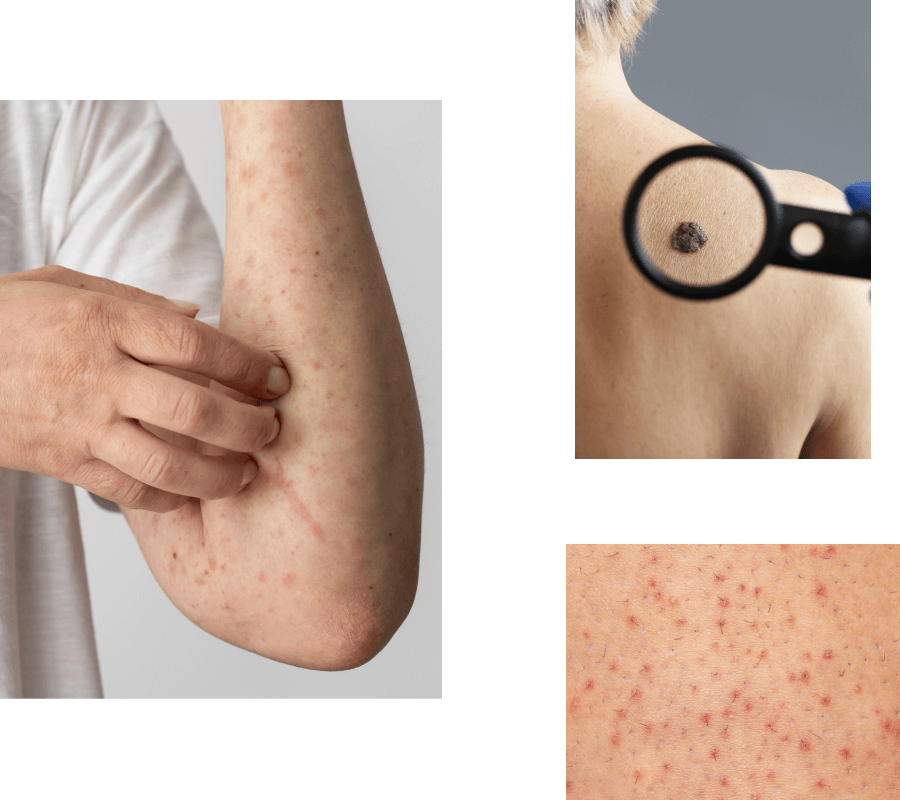Skin Cancer
By now everyone is aware of the link between excessive exposure to the sun and skin cancer. Additionally, it is also believed that the UV light from tanning beds also poses a danger, and can contribute to skin cancer. Therefore, the need for adequate protection when out in the sun cannot be overemphasized.
Avoidance is the Best Protection
It is important to protect your skin with a sunscreen that blocks both the UVA and UVB rays of the sun. The sunscreen you choose should have a minimum sun protection factor (SPF) of 30; choose one with a higher SPF on those days that you are likely to spend a long time in the sun. If possible, avoid going out in the sun when UV light is the strongest, which is between the hours of 10am to 4pm when the sun is at its highest.

Types of Skin Cancer
Basal Cell Carcinoma (BCC): This is the most common form of skin cancer, and is characterized by raised bumps or tumors that appear on the skin. It seldom spreads to other parts of the body, but can cause disfiguration if left untreated. It is more often found in light-skinned individuals, and rarely occurs in people with dark skin.
Squamous Cell Carcinoma (SCC): This is the second most common form of skin cancer. It generally resembles scaly red patches, or nodules, and often appears on the lower lip, ear, and face.
Malignant Melanoma: This type of cancer develops in the pigment cells of the skin, which are known as melanocytes. While it is not as prevalent as BCC and SCC, it is the deadliest of them all, and spreads easily to other parts of the body including the internal organs. However it can be cured if it is diagnosed early. Malignant melanoma is not easy to spot but is often characterized by moles on the skin that suddenly change their size, shape or appearance.
Who is at risk?
Individuals with a family history of skin cancer, as well as light skinned individuals who tend to burn when they are in the sun rather than tan, are definitely at risk for skin cancer.
Diagnosis
Regular self-examination is important to detect early signs of cancer. Make it a habit to regularly examine your skin and take note of any new spots, or be aware of any changes in existing spots or moles. In addition, be sure to schedule an annual skin exam with your physician.
Treatment Options
Superficial Radio Therapy is a very effective treatment for patients with non-melanoma skin cancer. It is therefore directed to patients with BCC and SCC. Superficial Radio Therapy involves the use of a low-energy radiation beam that penetrates the skin and targets the tumor, without damaging the surrounding tissue. Treatment can be done in a physician’s office and 12-15 sessions are generally required. Additional sessions may be required in more severe cases of skin cancer.
